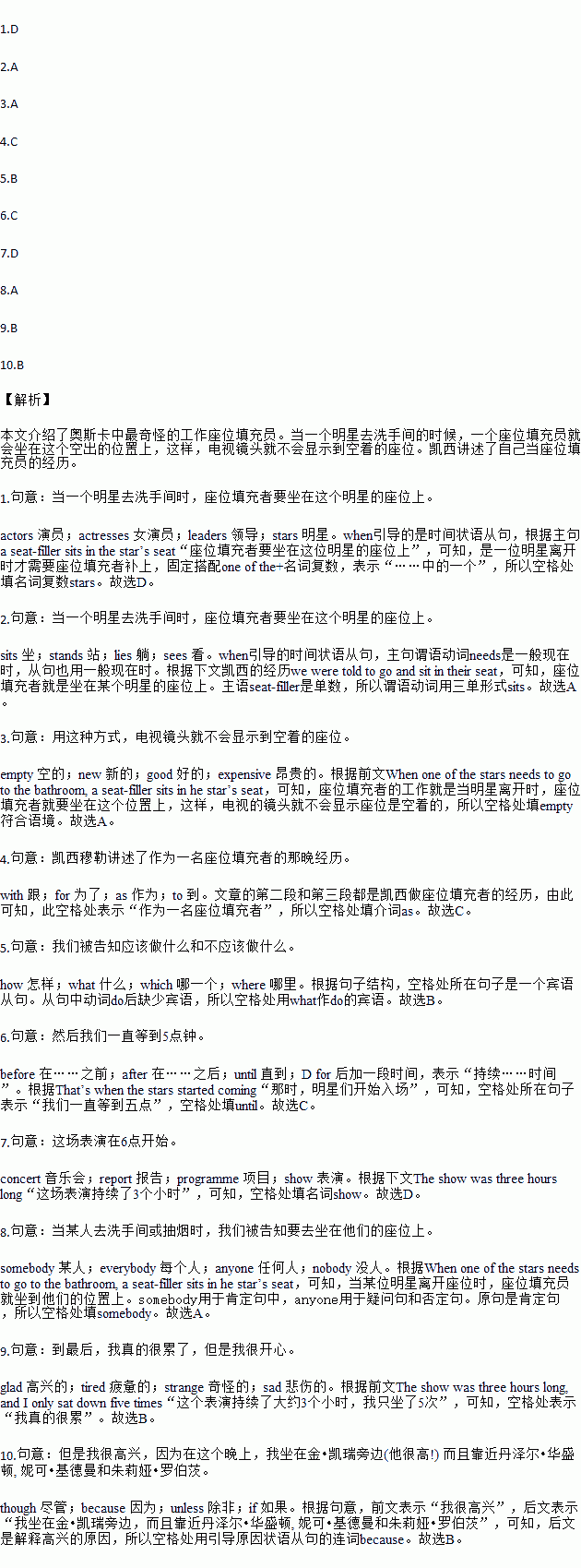题目内容
One of the strangest jobs at the Oscars is that of a seat-filler. When one of the _______ needs to go to the bathroom, a seat-filler _______ in the star’s seat. That way, the TV cameras won’t show any _______ seats. Kathy Muller talks about her night _______ a seat-filler:
I was told to reach the theater in the middle of the day, wearing my dress for the evening. There were about 200 seat-fillers, all very excited. We were told _______ we should and shouldn’t do (for example, “Don’t talk to the stars”), and then we waited _______ five o’clock. That’s when the stars started coming.
The _______ started at six o’clock. We had to stand outside the doors. Then, when _______ came to go to the bathroom or have a cigarette (香烟), we were told to go and sit in their seats. The show was three hours long, and I only sat down five times. By the end, I was really _______, but I was happy, __________ during the evening, I sat behind Jim Carrey (he’s very tall!) and close to Denzel Washington, Nicole Kidman and Julia Roberts. It was an exciting night, but I think the next year I’ll watch the Oscars on TV at home like everyone else!
1.A.actors B.actresses C.leaders D.stars
2.A.sits B.stands C.lies D.sees
3.A.empty B.new C.good D.expensive
4.A.with B.for C.as D.to
5.A.how B.what C.which D.where
6.A.before B.after C.until D.for
7.A.concert B.report C.programme D.show
8.A.someone B.everybody C.anyone D.nobody
9.A.glad B.tired C.strange D.sad
10.A.though B.because C.unless D.if
 阅读快车系列答案
阅读快车系列答案
